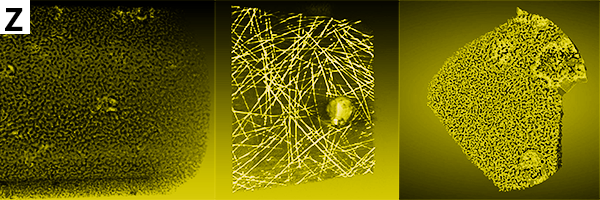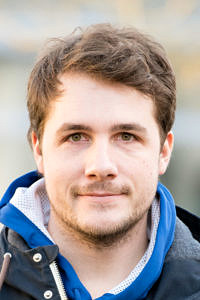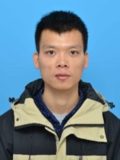Postdoc project Z: NanoCT – Developing and establishing of novel in situ approaches

NanoCT: Developing and establishing of novel in situ approaches
In this project, a postdoctoral researcher with proven expertise in the field of high-resolution X-ray microscopy (XRM) should be given the opportunity to develop innovative methods of in-situ microscopy / tomography at the Xradia Ultra 810 X-ray microscope installed in Erlangen GRK scientifically profiled. The colleagues will directly benefit from the work in Project Z, as this will allow far-reaching in situ studies to be realized are, as would otherwise be possible with a new major research device of this complexity in the context of doctoral theses. The Xradia Ultra 810, which was acquired in a major DFG initiative, uses zone-plate optics to achieve the highest resolution (<50 nm) in a laboratory X-ray microscope. The sample space offers sufficient space for in situ structures. In situ studies on nanomaterials using high-resolution XRM are currently a highly topical area of research. The big advantage of a laboratory instrument is that there is enough equipment time for development and testing. With regard to the GRK, the Xradia Ultra 810 was therefore requested with an Ultra Load Stage (LS108), which is only installed on a few devices worldwide and allows micromechanical 2D / 3D in situ studies on nanomaterials. In addition, a variety of other in-situ work with the X-ray microscope can be realized, such as investigations on corrosion or for the thermally induced coarsening of nanoporous metal foams. In situ cells developed on the laboratory instrument can also be used for measurements with higher time resolution at synchrotron sources.
Members
Dr. Johannes Will, Akad. Rat
Chair of Micro- and Nanostructure Research
- Email: johannes.will@fau.de
- Website: http://www.em.techfak.uni-erlangen.de
Dr. Mingjian Wu
Chair of Micro- and Nanostructure Research
- Email: mingjian.wu@fau.de
- Website: http://www.em.techfak.uni-erlangen.de/
Dr. Xin Zhou
Chair of Micro- and Nanostructure Research
- Email: xin.zhou@fau.de
<



